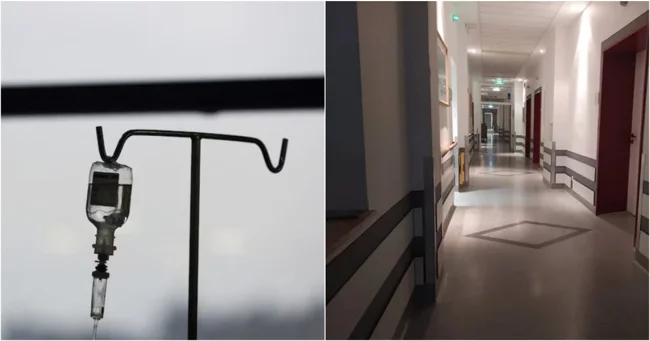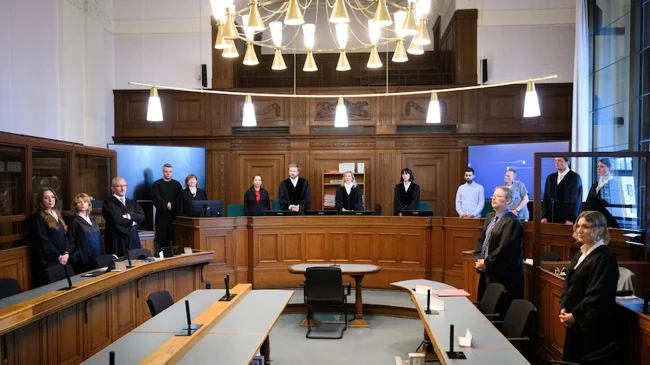Doctor Death: a doctor is on trial in Germany, behind whom a trail of bodies and fire stretches (4 photos)
One of the most horrific trials of recent years has begun in Germany. A palliative care doctor is in the dock who, according to investigators, put his patients to sleep forever. 
His name is not officially disclosed, in court documents he is listed as Johannes M. He is 46 years old. He was supposed to alleviate suffering, but instead, he allegedly chose when this suffering came to an end.
According to the initial version of the prosecution, he was involved in four murders. Somehow, during his shift, patients died one after another. They started looking into it, and it turned out that the doctor had too many secrets.
Now the number of victims has grown to fifteen. And this, as the prosecutor's office says, may be just the beginning. Investigators are looking into another 96 cases, each of which could result in a new grave on this man's conscience. 
Judge Sylvia Busch (center) with the prosecution and defense attorneys on the first day of the trial of Johannes M.
His methods were cold, precise, pharmaceutically pure. Death came quickly to his charges. The doctor injected patients with lethal doses of sedatives and muscle relaxants. Without consent. Without goodbyes. Without a chance. Sometimes, to erase the evidence, he went further and got rid of the evidence by setting fire to his victims' homes, leaving behind not just death, but ashes.
The victims ranged in age from 25 to 94, men and women. They all trusted the doctor, believing that he had come to help, and he had come to end their lives.
"The defendant apparently had no motive for killing people other than the act of murder itself," prosecutors said. 
Prosecutor Philipp Meyhöfer and the public prosecutor's office report that dozens of other suspected cases of patient murder by the doctor are being investigated separately.
The paradox and nightmare of the situation is underscored by the fact that in 2013, Dr. Johannes wrote a scientific paper. He studied serial murders committed in Frankfurt. The topic: "Why do people kill?" The first line of the paper is a question that has now become an ominous echo of his own biography.
Why do people kill? 
A group of lawyers defending the doctor told the district court in Berlin that he would not give any evidence
It was as if the doctor was looking for an answer not in books, but in practice. He did not just read about murderers, he became one of them. Perhaps even one of the most dangerous in modern German history.
One of the investigators told journalists: "This was not an accident, it was a method. He did it consciously. He played the role of God."
There are no photos of the maniac doctor on the Internet, in Germany there is a strict standard of personal immunity: the accused appears only as JohannesM., and his appearance is not revealed.




























